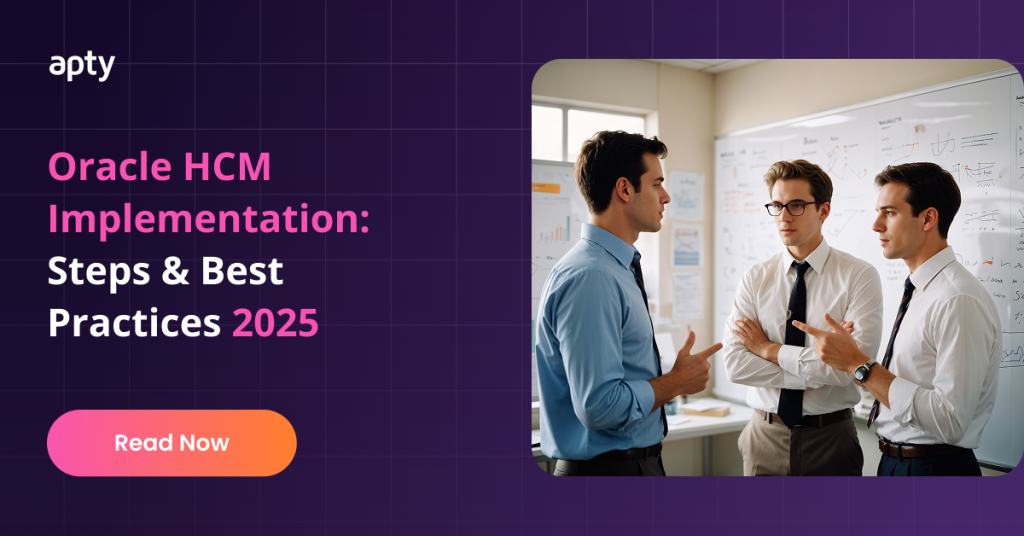For businesses aiming to elevate their sales and customer management processes, implementing a Customer Relationship Management (CRM) system is not just an option; it’s a strategic necessity. Yet, embarking on the Customer Relationship Management (CRM) implementation journey can seem daunting. With careful planning, a clear understanding of the challenges, and strategic use of Digital Adoption Platforms (DAPs), organizations can turn this complex process into a catalyst for unprecedented sales growth.
The Strategic Imperative of CRM Implementation

CRM systems have become the backbone of effective sales strategies, offering many benefits that can transform how companies interact with their customers. Implementing a CRM system aligns your sales strategies with business objectives, facilitating improved customer interactions, enhanced data analysis, and increased sales efficiency.
Read More: CRM Implementation Process: 7 Steps for a Successful Implementation
Benefits of CRM Implementation: A Glimpse into Sales Success
The advantages of a well-executed CRM implementation are manifold. According to Salesforce, CRM applications can help increase sales by up to 29%, sales productivity by up to 34%, and sales forecast accuracy by 42%. These figures highlight the direct impact of CRM on enhancing sales outcomes and why its implementation is a pivotal step for businesses looking to scale their operations.
The CRM Implementation Process: A Roadmap to Success
Embarking on the CRM implementation journey requires a structured approach. From initial assessment to selecting the right system and through to execution, every step should be meticulously planned.

- Initial Assessment and Planning: The first step is understanding your organization’s needs. Identify your sales team’s key challenges and how a CRM can address them.
- Choosing the Right CRM: Options like Salesforce CRM, Dynamics CRM, and others offer varied features. The choice depends on your business size, needs, and the specific functionalities you require to achieve your sales objectives.
- Implementation Roadmap: A clear plan that outlines each phase of the implementation process is essential. This roadmap should include timelines, milestones, and the resources required at each step.
Despite the benefits, CRM implementations can encounter hurdles. A report by Merkle found that up to 63% of CRM projects fail. Understanding and planning these challenges can significantly increase your chances of success.

Common pitfalls include lack of user adoption, data migration issues, and underestimating the importance of ongoing training and support. To mitigate these risks, involve your sales team early, ensure clear communication of the benefits, and choose a CRM that aligns with your user’s needs and business processes.
Read More: Simplifying the Complexities of CRM Training: A DAP’s Role in Sales Operations
Digital Adoption Platforms: Bridging the CRM Success Gap

Digital Adoption Platforms (DAPs) like Apty are crucial in overcoming common challenges faced during CRM implementation. They ensure that the transition to new CRM systems is smooth and that users can leverage the full potential of these platforms from the get-go. Here’s a closer look at the specific challenges organizations face during CRM implementation, the metrics to keep an eye on, the impact of these challenges, and how Apty offers solutions to each:
| Challenges | KPI Metrics | How does it impact | How Apty helps |
| High Learning Curve | Time to Proficiency, Number of Support Tickets, Completion Rates of Training Modules, User Assessment Scores, Time Spent on Initial Training | Decreased Productivity, Increased Costs, Loss of Competitive Edge, Strained Employee Morale, Ineffective Decision-Making | Interactive Walkthroughs and Tutorials, Contextual Guidance and Tooltips, In-App Learning Resources, User Proficiency Tracking, Feedback Loops and Surveys |
| Resistance to Change | User Adoption Rates, Feedback and Survey Scores on Change Perception, Time Taken to Embrace New Features, Employee Satisfaction Scores, Rate of Participation in Change Initiatives | Stagnation of Innovation, Suboptimal System Utilization, Diminished Employee Collaboration, Increased Training Costs, Customer Dissatisfaction | Interactive Walkthroughs and Tutorials to ease adaptation to new features, Contextual Guidance to support understanding and acceptance, Surveys to understand and address user resistance |
| Inconsistent Training Materials | Content Completion Rates, User Feedback on Training Material Relevance, Revision and Update Frequency of Training Materials, Alignment of Training Content with Actual CRM Use Cases, Accessibility and Availability of Training Resources | Knowledge Discrepancies, Increased Support Burden, Lower User Proficiency, Impaired Decision-Making, Increased Training Costs | In-app learning Resources to provide consistent and relevant training materials, User Proficiency Tracking to ensure materials are effective |
| Ineffective Knowledge Retention | Post-training proficiency Levels, Frequency of Refresher Training Participation, User Performance Improvement Over Time, Retention Rates of Critical CRM Concepts, and Performance Metrics Before and After Training Interventions | Reduced Operational Efficiency, Compromised Data Accuracy, Increased Training Costs, Missed Revenue Opportunities, Diminished Customer Satisfaction | Interactive Walkthroughs and Tutorials for effective learning retention, Contextual Guidance and Tooltips to reinforce learning, User Proficiency Tracking to monitor knowledge retention |
Integrating DAPs like Apty into the CRM implementation strategy addresses the immediate challenges of adoption and training and ensures CRM systems’ long-term success and optimization. Apty enhances user confidence and competence by providing real-time support and guidance, leading to improved productivity, lower training costs, and a more competitive and agile organization.
Learn More: Minimizing CRM Implementation Costs with Strategic Digital Adoption
Leveraging CRM for Strategic Sales Planning
A CRM system is not just about managing current customer relationships; it’s also a powerful tool for strategic sales planning and forecasting. By analyzing customer data and sales trends, CRMs help businesses identify potential sales opportunities and areas for growth.
Learn More: The Role of Digital Adoption Platforms in CRM Data Integrity & Compliance
CRM and Customer Retention: Strengthening Bonds
Customer retention is another critical aspect where CRM systems shine. By tracking customer interactions and feedback, businesses can create personalized experiences that foster loyalty and encourage repeat business. This not only enhances customer satisfaction but also contributes significantly to sales success.
Delve More: 5 CRM Implementation Failures and How to Avoid Them
Embracing the Future with Customer Relation Management
As we look to the future, the role of CRM in sales success is only set to grow. With advances in artificial intelligence (AI) and machine learning, CRM systems will offer even more sophisticated analytics and predictive capabilities, further enhancing sales strategies and customer engagement.
CRM implementation is a journey that requires careful planning, understanding of potential challenges, and strategic use of technologies like Digital Adoption Platforms. By following a structured implementation process and leveraging the full capabilities of CRM systems, businesses can achieve improved sales results and a deeper, more meaningful connection with their customers. Remember, a successful CRM implementation is more than a technological upgrade; it’s a strategic investment in your business’s future.
Table of Contents
- Navigating the CRM Implementation Journey: Strategies for Sales Success
- The Strategic Imperative of CRM Implementation
- Benefits of CRM Implementation: A Glimpse into Sales Success
- The CRM Implementation Process: A Roadmap to Success
- Navigating Challenges in CRM Implementation
- Digital Adoption Platforms: Bridging the CRM Success Gap
- Leveraging CRM for Strategic Sales Planning
- CRM and Customer Retention: Strengthening Bonds
- Embracing the Future with Customer Relation Management
- Ready to Transform Your CRM Experience?
- Oracle HCM Implementation: Steps & Best Practices 2025
- ERP Implementation: Steps, Challenges & Best Practices
- 9 Change Management Strategies for Smooth Transitions






